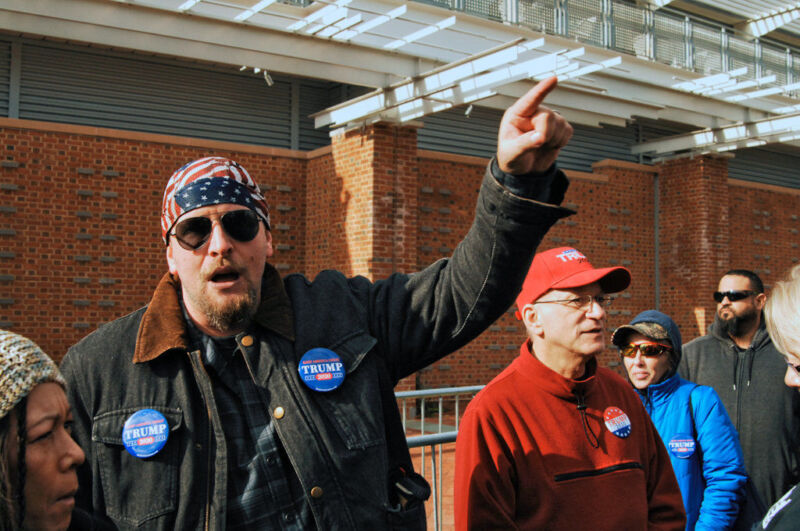
“Join Your Local Militia or III% Patriot Group,” a post urged the more than 650 members of a Facebook group called the Free American Army. Accompanied by the logo for the Three Percenters militia network and an image of a man in tactical gear holding a long rifle, the post continues: “Now more than ever. Support the American militia page.”
Other content and messaging in the group is similar. And despite the fact that Facebook bans paramilitary organizing and deemed the Three Percenters an “armed militia group” on its 2021 Dangerous Individuals and Organizations List, the post and group remained up until WIRED contacted Meta for comment about its existence.
Free American Army is just one of around 200 similar Facebook groups and profiles, most of which are still live, that anti-government and far-right extremists are using to coordinate local militia activity around the country.

After lying low for several years in the aftermath of the US Capitol riot on January 6, militia extremists have been quietly reorganizing, ramping up recruitment and rhetoric on Facebook—with apparently little concern that Meta will enforce its ban against them, according to new research by the Tech Transparency Project, shared exclusively with WIRED.
Individuals across the US with long-standing ties to militia groups are creating networks of Facebook pages, urging others to recruit “active patriots” and attend meetups, and openly associating themselves with known militia-related sub-ideologies like that of the anti-government Three Percenter movement. They’re also advertising combat training and telling their followers to be “prepared” for whatever lies ahead. These groups are trying to facilitate local organizing, state by state and county by county. Their goals are vague, but many of their posts convey a general sense of urgency about the need to prepare for “war” or to “stand up” against many supposed enemies, including drag queens, immigrants, pro-Palestine college students, communists—and the US government.
These groups are also rebuilding at a moment when anti-government rhetoric has continued to surge in mainstream political discourse ahead of a contentious, high-stakes presidential election. And by doing all of this on Facebook, they’re hoping to reach a broader pool of prospective recruits than they would on a comparatively fringe platform like Telegram.
“Many of these groups are no longer fractured sets of localized militia but coalitions formed between multiple militia groups, many with Three Percenters at the helm,” said Katie Paul, director of the Tech Transparency Project. “Facebook remains the largest gathering place for extremists and militia movements to cast a wide net and funnel users to more private chats, including on the platform, where they can plan and coordinate with impunity.”
Paul told WIRED that she’s been monitoring “hundreds” of militia-related groups and profiles since 2021 and has observed them growing “increasingly emboldened with more serious and coordinated organizing” in the past year.
One particularly influential account in this Facebook ecosystem belongs to Rodney Huffman, leader of the Confederate States III%, an Arkansas-based militia that, in 2020, sought to rally extremists at Georgia’s Stone Mountain, a popular site for Confederate and white supremacist groups. Huffman has created a network of Facebook groups and spreads the word about local meetups. His partner, Dabbi Demere, is equally active and on a mission to recruit “active” patriots into the groups. Huffman and Demere are also key players in the pro-Confederate movement known as “Heritage, not Hate.”
Before Meta shut it down, the pair ran Free American Army, which drew in individuals from several militias, including the Kentucky 3 Percenters, the Virginia Liberty Guard, and the Florida-based Guardians of Freedom, a group that was mentioned in the final January 6 report and whose members were among those arrested in connection with the Capitol attack. Free American Army also included a known activist in the far-right extremist Boogaloo movement. At least one user in the group claimed in their profile to be active-duty military; another claimed to work for the Bureau of Prisons.




















+ There are no comments
Add yours